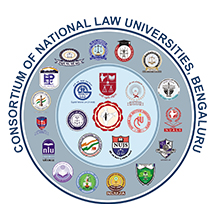
Consumer Law Course Details - Fees, Subjects, Syllabus, Duration, Eligibility, Career Scope
What is Consumer Law
Consumer Law is a specialisation which deals with the interests of the consumers or the public. It also makes sure that consumers are not exploited in the corporate sector. It involves consumer dispute management, dispute resolution, It makes laws which protect the consumers or the public against unfair practices and exploitation. Consumer law is that area of law which gives protection to consumers when they go out to buy products or services. They protect these consumers or the public against the frauds or mis-selling of these products or services. Ensure that the rules and regulations laid down by this law are met and followed.
The eligibility criteria of Consumer Law depends on various factors such as the ownership of the institute and the level of education. Eligibility criteria for undergraduate degrees, also differs for LLB and integrated law degrees such as BA LLB or BBA LLB. Generally to apply for LLB degree, candidates must hold a bachelor's degree, similarly for integrated law degrees, candidates can apply after completing their 10+2 from a recognised board. To be eligible for an LLM degree, candidates must hold an LLB from a recognised institute in India.
Consumer Law- Important Dates and Events
- 7th December 2024- CLAT result out
- 9th December 2024-CLAT 2025 Counselling Registrations Started
- CLAT toppers list out
Consumer Law Course Details
| Particulars | Values |
|---|---|
Branch Name | Consumer Law |
Consumer Law Degrees | LLB, Diploma, and LLM |
Consumer Law Course Duration | UG: 3 years PG: 2 years |
Consumer Law Eligibility Criteria | UG: BA LLB- Completion of 10+2 in any stream PG: Graduation in law or related field with a minimum 50 per cent aggregate. |
Consumer Law Course Details | Admission Examination and Merit Scores |
Consumer Law Entrance Exam | UG: CLAT, AILET PG: CLAT PG |
Consumer Law Job Profiles | Consumer Advocate, Consumer Lawyer, Consumer Law Consultant |
Consumer Law Average Salary | Rs. 4.9 LPA (Consumer Advocate) |
Consumer Law Top Recruiters | JP Morgan Chase Bank, Sairam Law Associates, Lawtendo, International Justice Mission, Space Consultants, Disha Law Firm, Universal Hunt, KPS Legal, RJ Cube Staffing Solutions PVT. Ltd., Adani Enterprises Ltd. |
Top Private Consumer Law Colleges in India
Consumer Law is a relatively new discipline, and only some private colleges offer this course. To know the course details, candidates are advised to visit the official website of the provider. Listed below are some of the popular private Consumer Law colleges in India along with their respective fee details.
| Colleges | Fees |
|---|---|
| Apex Professional University, Pasighat | - |
| SPCL Chandrapur | - |
Top Government Consumer Law Colleges in India
Many government colleges also offer Consumer Law courses. Students interested in studying the same from a government college should check the course fees and other relevant details from a recognised institute in India.
| Colleges | Fees |
|---|---|
| Gondwana University, Gadchiroli | - |
| RTMNU Nagpur | - |
Eligibility Criteria (UG & PG) of Consumer Law
Candidates interested in studying Consumer Law need to fulfil the eligibility criteria. Eligibility criteria for undergraduate degrees maybe different for LLB and integrated law degrees. After graduating with an LLB degree, students can apply for an LLM degree. In this section, we have mentioned the UG and PG eligibility criteria for Consumer Law.
Eligibility Criteria for UG Courses
Students interested in studying Consumer Law courses at an undergraduate level must fulfil some of the prerequisites. Admission requirements may vary from one institute to another. However, some of the most common eligibility conditions to get admission into the course are listed below.
| Eligibility Parameters | Details |
|---|---|
Educational Qualification | For LLB- Bachelor’s degree or equivalent from a recognised institute in India For BA LLB- 10+2 from a recognised institute in India |
Minimum aggregate percentage | 50-60 per cent aggregate score (5-10 per cent relaxation for candidates belonging to the reserved categories) |
Top Entrance Exams for UG Courses
Aspiring candidates need to appear for certain entrance examinations before applying for admission. Some colleges may conduct university-specific examinations for Consumer Law courses. In the table below, we have provided the details of a popular examination for UG degrees.
| Exam Name | Conducting Body | Exam Schedule |
|---|---|---|
National Law University | ||
NLU Delhi |
Eligibility Criteria for PG Courses
Students who have completed their undergraduate degree in Consumer Law can further pursue their post-graduation in the same field. The admission requirements may vary by the institute. Students must meet the eligibility requirements of the chosen institute before applying for the admission. However, the common eligibility details of the course are listed below.
| Eligibility Parameters | Details |
|---|---|
Educational Qualification | Bachelor’s degree from a recognised institute in India |
Eligibility Parameters | 50-60 per cent (5-10 per cent relaxation for candidates belonging to the reserved categories) |
Top Entrance Exams for PG Courses
Candidates who aspire to pursue their postgraduate degree must appear for certain entrance examinations. Those who have successfully cleared these entrance examinations can get admission depending on their cutoff marks. The popular examinations for Consumer Law are listed below.
| Exam Name | Conducting Body | Exam Schedule |
|---|---|---|
Consortium of National Law Universities (NLU) |
College Predictors VIEW ALL
Scope of Consumer Law in India and Abroad
Students can explore a lot of career options in the field of consumer law. A day never goes when we don’t see a consumer being miss-lead with. Either in online shopping or at offline retail stores. For maintaining such rights of the consumers and the public, these laws are very important. New trends have been seen from day to day coming in this field. A graduate from this field can go for further studies in a master’s degree, where they will get in-depth knowledge about the consumer law course. They can even start working as lawyers, lecturers, consultants, analysts and many other job profiles are open for them.
Course Fees Consumer Law
| Minimum Fees | Maximum Fees | |||
|---|---|---|---|---|
| Private | Government | Private | Government | |
| PG | ||||
| DIPLOMA | ||||
Course Subjects
Consumer Law Syllabus for UG Courses
In the undergraduate degree, consumer law is not offered as a specialisation but students study it as a module. To know the topics covered in consumer law, candidates can check the official website of the provider. Some of the subjects taught at undergraduate degree include.
| Introduction to Consumer Law | Emerging Issues in Consumer Law |
| Product Liability | Consumer Rights and Protection |
| Unfair Trade Practices | Consumer Protection in Specific Sectors |
Careers in Consumer Law
The career is very vast for these graduates and is growing rapidly too. This specialisation of consumer law is in demand in the private sector as well as in other fields. The students who have studied this consumer law have a large variety of opportunities waiting for them. The laws keep on changing, and the graduates need to have all the latest knowledge about it.
The students also have an opportunity to go for higher education. Some of the jobs they would like to go for are – lawyer, legal counsel, law practitioner at a private firm, government employee, legal executive, judge, solicitor, an employee at an NGO's and lecturer.
| Job Profiles | Job Description |
|---|---|
Consumer lawyer | Consumer Lawyer review the documents and identify the risks and work for providing justice to their clients by interpretating laws, rules and regulations. They draft wills, manage them, and event draft trusts, estates, contracts, and deeds. |
Legal Consultant | Legal Consultants assists their clients on legal matters relating to the court. They advise on legal documents, negotiate terms and contracts. They also defend the rights of their court and plead for justice. They review and draft legal documents and maintain client relationships and also research new things. |
Upcoming trends
The new technologies upcoming in the consumer law field are increasing access to more products, services and information. But with such advantages, there are a lot of challenges too. Consumer advocacy helps to ensure that consumers get all the benefits. Lawyers now take the file cases to be digitally filled rather than doing the paperwork. Paperless work is now being brought up to remove the fault or loss of papers. When corrections are needed to be made, editing in the digital file is very easy, but on paper, an entirely new document needs to be created.
Digital technologies will also protect the documents from misuse by setting up passwords for the files, whereas the papers can be stolen and misused by anyone. There has been increasing use of the wireless wearable and portable devices which are very helpful in the use of keeping a track in the health and the fitness of the individual. These devices can also set up at the homes such as energy, lightning or security. They also include large smart systems like public transit for their purpose.
Consumer law graduates have become such an integral part of our lives that many are not aware of or do not care about the data they are giving to the companies who own these services/products. This is where consumer law comes in and is required to protect the consumer from misuse of their data and why consumer lawyers are even more relevant today.
Job Profiles and Top Recruiters
Consumer Law graduates have vast career options after graduation. They can work at both private and public sectors. Some of the top recruiters in the field of Consumer Law are listed below.
Top Recruiters
- Amarchand Mangalda
- AZB & Partners
- Luthra & Luthra
- J Sagar Associates
- Khaitan & Co.
- Trilegal
- Desai & Diwanji
- Singhania & partners
- Wadia Ghandy & Co.
- Vaish & Associates
Average Salary
The average salary in the consumer law sector for each job profile is different depending on their experience, and it increases as per the fame. In the table below, we have discussed the salary options after Consumer Law course.
| Job Profile | Average Salary |
|---|---|
Consumer Court Advocate | Rs. 4 LPA |
Legal Consultant | Rs. 7.1 LPA |
Salary Source: AmbitionBox
Required Skillset for Consumer Law
Each lawyer has a particular skill with which he can be identified and is also known for. Some of the skills required for consumer law course are given below.
- Debating
- Legal Aptitude
- Time Management
- Good Communication
- Debating skills
Course Curriculum for Consumer Law
Consumer law course is very wide and includes many subjects which are taught to the students. The students are taught about the laws which fall in this category, what are the rights of the consumers and the public when they go to buy goods and services, how to protect the customers and public from mal-practices and how to give them justice if this happens.
The bachelor’s course in consumer law would teach the students about the laws and penalties or punishments given to the person who has violated these laws while the master’s degree would give them in-depth knowledge about this law. During their course, the students have to handle many projects and undergo training and internships under well-known and renowned lawyers if possible to get an outlook of the corporate world and how to drive justice in their favour.
Frequently Asked Questions (FAQs)
Question: What are the different courses available for consumer law?
Answer :
The following are some of the courses one can take to study consumer law-
Diploma in consumer law- 1-2 year program
Undergraduate degree course- 3-5 year program.
Post Graduation - 2-year program.
Students can also pursue some certification courses as well.
Question: What are the different jobs a graduate in consumer law can look for?
Answer :
A graduate can start as a lawyer, a legal analyst or consultant, judge, lecturer, solicitor, and government employee.
Question: What does spurious goods and services mean?
Answer :
Any goods and services which are said to be genuine but they are not, they may have any adulteration in them or alteration which destroys their original content. Consumer lawyers look into this matter and take necessary actions to implement penalties and punishments.
Question: Which are the top colleges offering consumer law course?
Answer :
The top colleges offering this field are –
National Law School of India University, Bangalore
National Law University, Delhi
NALSAR University of Law, Hyderabad
National Law Institute University, Bhopal
Symbiosis Law School, Noida
ILS Law College, Pune
Gujarat National Law University, Gandhinagar
O.P. Jindal Global University, Sonipat
Question: What is the fee of consumer law course?
Answer :
The fees for this course varies from Rs. 20,000 to Rs. 2,00,000 depending on the institution.















